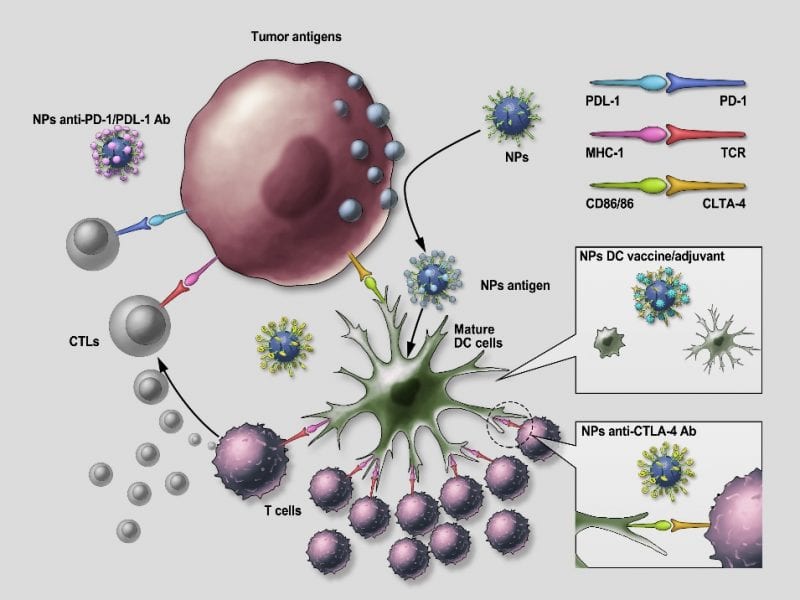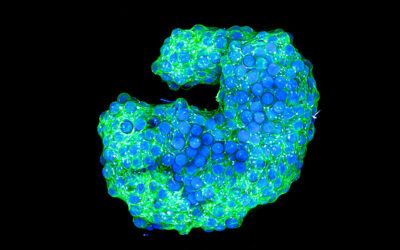Cancer immunotherapy, the utilization of patients’ own immune systems to treat cancer, has emerged as an exciting new strategy in cancer treatment. Recent developments of antibodies that can block negative immune regulatory pathways, such as cytotoxic T-lymphocyte-associated antigen 4 (CTLA-4) and programmed cell death 1 (PD-1), have resulted in clinical improvements in patients with metastatic cancers that was not seen previously. Despite the exciting clinical data, the number of patients with durable responses to immunotherapy remain low. Therefore, there has been high interest in the development of novel strategies to further improve cancer immunotherapy. One innovative approach is to utilize nanotechnology.
In a recent article published in WIREs Nanomedicine and Nanobiotechnology, a group of leading researchers from the University of North Carolina at Chapel Hill and Xuzhou Medical University, China comprehensively reviewed current research on nanomedicine approaches to improve cancer immunotherapy. Various applications that are currently being studied include nanoparticles as cancer vaccines, drug delivery vehicles, and adjuvants to improve immune response. Moreover, researchers have utilized nanotechnology to modify the tumor microenvironment to improve immune reaction to cancers.
The article also sheds light on future research directions and will benefit nanomedicine researchers, cancer researchers, and oncologists, as well as the anyone interested in cancer research and advances.

















